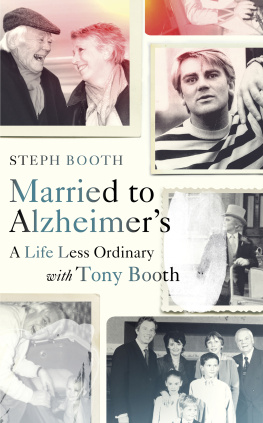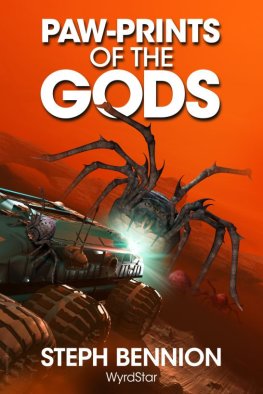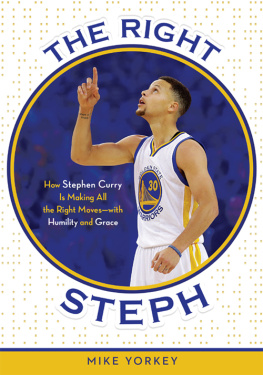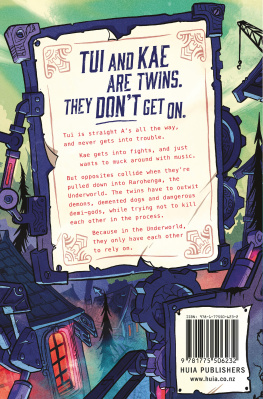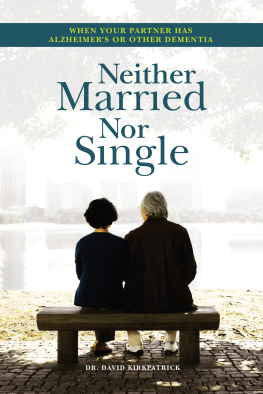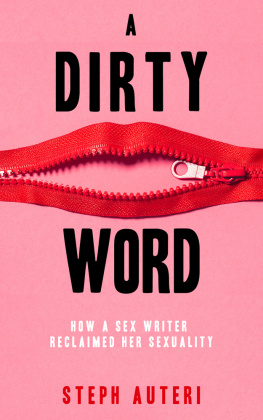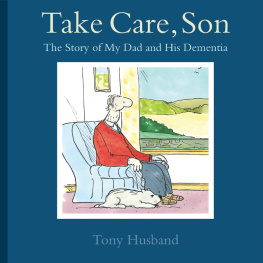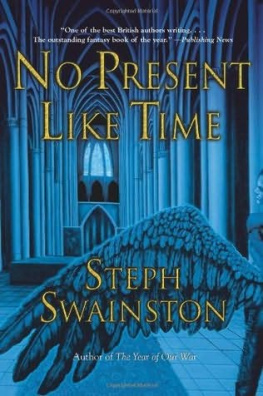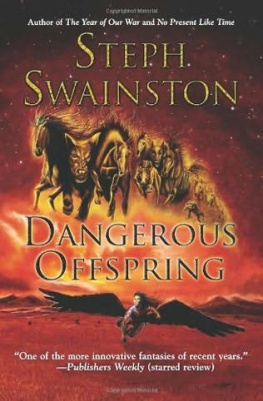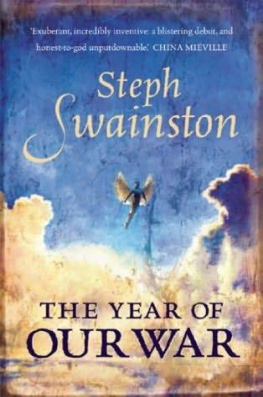

Steph Booth
Married to Alzheimers
A life less ordinary with Tony Booth

Contents
About the Author
Steph Booth is married to actor, Tony Booth, and has four sons and three grandchildren. Before giving up paid employment to look after Tony full time, Steph worked as an English teacher in secondary schools, and later lectured in Politics at the University of Salford. She has been writing for the Irish Times since 2014 about living with and caring for her husband who had advanced Alzheimers disease before passing away in 2017. She also gives presentations about her role as a carer to various organisations including the medical profession. She is an obsessional gardener and an occasionally obsessional hand quilter. Steph lives in Todmorden, West Yorkshire.
for Tony
He was my North, my South, my East and West,
My working week and my Sunday rest,
My noon, my midnight, my talk, my song;
I thought that love would last for ever: I was wrong.
W.H. Auden, Funeral Blues

Introduction
This is the story of my life with the actor and campaigner Tony Booth, and how we coped with his Alzheimers. It is the truth of our marriage and the impact dementia had on us as a couple and the life we had together. This book, Married to Alzheimers, has developed from the columns I wrote for the Irish Times about living with Tonys Alzheimers, which in turn came out of a discussion Tony and I had about his involvement in the National Pensioners Convention (NPC). When Tony and I discussed going public about his illness he was initially uncertain. He was embarrassed to have Alzheimers, but after some reflection he told me I should write the pieces, saying, If Im ashamed, what about those other poor buggers? Lets get it out in the open, its about time. It was obviously personally difficult for him, but he saw it as the next logical step in his campaign for pensioner rights. One of the ironies of all this was that Tony never accepted he had dementia. He would accept he had Alzheimers, it was a disease that showed up on his brain scan, but not dementia. He refused to be labelled demented with all those negative connotations.
Tony was always an active political campaigner and his fame as an actor gave him a voice and a national platform which he was never reticent about using. The framing of older people as a drain on public finances and resources would infuriate him and once his son-in-law became the Prime Minister, Tony had even more opportunity to make his opinions known. He seized on every chance to lecture Tony Blair about the inadequacy of UK provision for the elderly. Poor man. No wonder he was so often busy when we stayed at Number 10.
It was while we were living in Ireland that Tony was first diagnosed with Alzheimers. It was only a tentative diagnosis and as nothing much changed in our day-to-day lives, it was easy enough to push it to the back of my mind as something that might or might not get worse. This was still in the early years of our marriage and our life was happy. Looking back, I can see we were incredibly lucky to have had that time in Ireland together. Away from the stresses and strains of life back in England, we were able to focus on each other, learning how to live together and establishing the give and take of a loving if tempestuous relationship. In that situation, who wants to think about the possibility of what life might eventually have in store? Certainly not me, and Tony had point-blank refused to accept he might be in the early stages of dementia. The head-in-the-sand strategy suited us both very well.
It was a couple of years after our return to England that the prognosis that had existed on the fringes of our lives suddenly demanded centre stage. Thats when everything changed. With the benefit of hindsight, I realise I was embarrassed and wondered how long we might be able to keep Tonys dementia a secret. How would I cope with the reactions of other people? I was not quite the hero I had imagined or hoped I would be, but despite this wobble I did somehow manage to overcome these feelings. At least most of the time.
Dementia is a cruel disease. It destroys an individuals personality bit by agonising bit and the misery of seeing that happen is unspeakable. It is not a disease like cancer or heart failure, where research and the medical professions can offer time lines, medical support and in the case of cancer the hope of remission. Dementia is unique to the person who has it and does not fit neatly into medical or research boxes. All we can do is wait and watch to see what happens next.
I went through some really tough times looking after Tony. The mood swings, the incessant repetition of the same question or statement. The hardest time was when Tony knew something was wrong with him but he couldnt work out what it was. Sometimes his roaring frustration would fill the whole day and he would be threatening me with his lawyers, meaning his daughters Cherie and Lyndsey. I would sometimes respond with threats of my own specifically that if he didnt stop behaving in this way he would have to go to live in a home. Usually, I would take the dogs for a long walk to escape from him and manage my own anger, exhaustion and desire to walk out on him for ever. For some reason I didnt ever walk out, maybe because I would eventually manage to get some sleep, which would always help.
Caring for Tony was always an up-and-down experience, and it was hard to keep up. He was restless at nights and I found sleep deprivation hard to cope with. Changing his medication helped, but as a result he became much more passive. Perversely, I was heartbroken. Where had my Tony gone? As well as making sure he didnt become irritable, I now had to be alert to his tiredness, particularly as his physical health was deteriorating. Having smoked since he was eleven years old, he was now suffering from heart failure. This was yet another layer of concern for me.
One of the hardest things to accept and I have yet to come to terms with it is how little there is in the way of meaningful, long-term support for those suffering from Alzheimers and for the people who care for them. Leaving the doctors office after being told the results of Tonys brain scan was one of the loneliest and most unnerving moments of my life. What was I supposed to do? Where was the information and advice? I didnt even know if Alzheimers was a psychological or a physical illness. Thank goodness for Google as the information really wasnt forthcoming from anywhere else.
This was more than ten years ago and sadly I dont see that the situation has particularly improved. Information is power and even the most basic facts would enable carers to get to grips and cope with what might happen as dementia progresses. While a great deal of money is spent on research, too little is put into providing essential information for carers, including letting them know how to access social service care and what benefits they might be entitled to.
Once I had made the decision to look after Tony myself that he was not going into a care home it was a case of muddling through. As his illness progressed, Tony became more and more dependent on me, which was exhausting and often frustrating; but having him at home meant I also got all the good as well as the bad. The times when he was lucid and chatty were a joy, and I could almost pretend things were fine. As his wife and carer, I was determined that we were going to continue to have as normal a life as possible, with the same routines, the same expectations of holidays and days out, keeping up with friends, pottering around at home and in the garden. Tony and I continued to have some really good holidays; he loved Paris and we went there quite often as one of my sons lived there. Heart failure meaning that he could no longer fly, he once persuaded me to drive all the way from West Yorkshire to south of Carcassonne in Languedoc. He was a history buff and particularly interested in the Cathars and their castles, which were always found on the top of cliffs. However, once we were there and he saw how steep the mountains were, I was the one despatched to climb them, take photographs of the castles and then show him what I had seen. What a dutiful wife I was!
Next page
